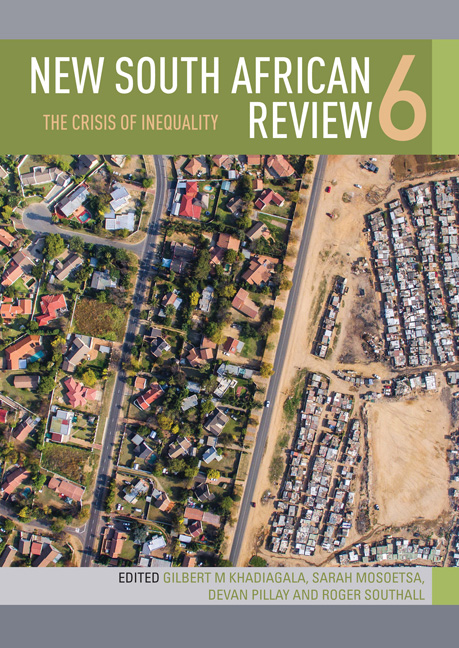Book contents
INTRODUCTION: The global crisis of inequality and its South African manifestations
Published online by Cambridge University Press: 23 March 2018
Summary
We are, once again, in world history, approaching an age of extremes, as the global crisis of accumulation approaches its social and ecological limits, generating huge inequalities last seen in the nineteenth century (Piketty 2014). This has resulted in increasing crises of political legitimacy in various countries and regions; the rise of populist leaders such as Donald Trump, the new president of the USA; and the decision by British voters (by a small majority) to leave the European Union. To a large extent the Right had successfully blamed immigration for rising unemployment, eclipsing the Left's traditional focus on class inequality with a stronger emotional appeal of identity politics – in particular race, ethnicity and/or religion. The rise of religious fundamentalism – whether Christian, Hindu, Buddhist or Islamic – has reached alarming proportions in parts of the world. However, while recent elections in other major developed countries such as France and Germany reveal a rise in support for anti-immigration (and, indeed, neofascist) parties, a class politics seems to have resonance, particularly among younger voters. The Left has seen increased support in countries like Greece and Spain, and in the rise of Bernie Sanders in the USA, as well as Jeremy Corbyn as leader of the UK Labour Party.
South Africa is a microcosm, with its own unique features, of this global socio-economic and political crisis. Our colonial-apartheid past generated distinct racialised and gendered forms of inequality and poverty, but a rising black elite since 1994 reveals that at a fundamental level inequality is based on class conflict – namely, the determination of the rich and powerful to maintain their privileges, against the struggles of the poor and excluded to obtain a share of the social surplus. The characterisation of our political economy as one that is dominated by ‘white monopoly capital’ is analytically weak in that it directs social inquiry, politics and policy towards the racial content of capital and class domination, rather than class domination itself. Indeed, politically charged assertions about ‘white monopoly capitalism’ are inclined to exaggerate the extent of white control of the economy, and downplay increased black participation.
- Type
- Chapter
- Information
- New South African Review 6The Crisis of Inequality, pp. 1 - 12Publisher: Wits University PressPrint publication year: 2018



